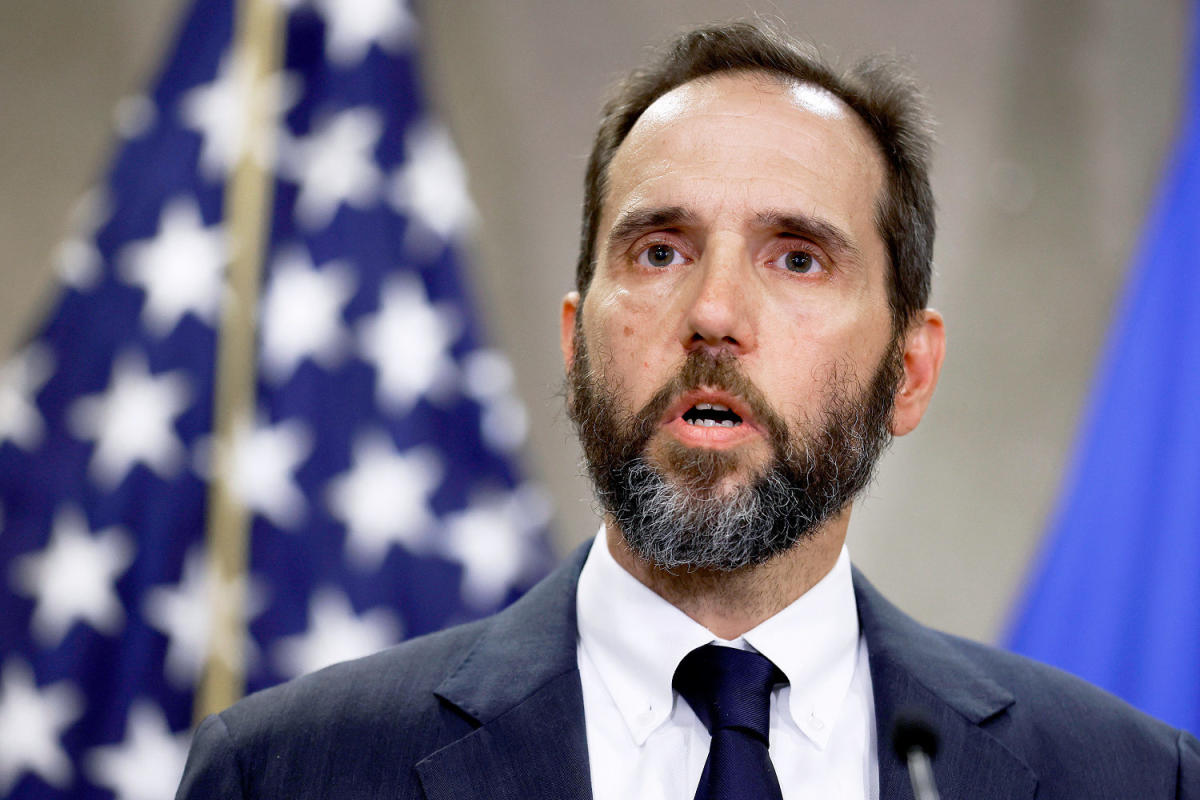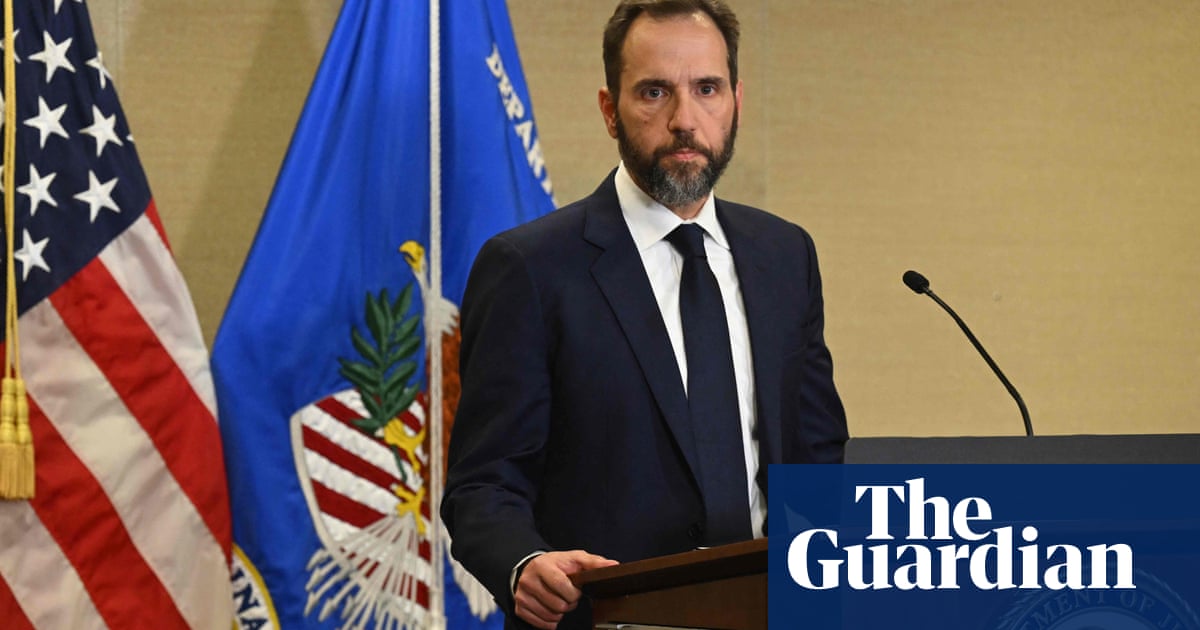Welcome to the online version of From the Politics Desk, an evening newsletter that brings you the NBC News Politics team’s latest reporting and analysis from the White House, Capitol Hill and the campaign trail.
In today’s edition, senior national political reporter Sahil Kapur examines how a Thursday vote in the Senate may have signaled a Democratic recalibration in immigration. Plus, senior national political reporter Jonathan Allen explains how Donald Trump's annexation agenda can be most directly tied to the Monroe Doctrine.
Sign up to receive this newsletter in your inbox every weekday here.
Democrats recalibrate on immigration after bruising defeat to Trump
By Sahil Kapur
After the issue served as a political albatross for them in the last election, Democrats are taking steps in the early days of the new Congress to recalibrate on immigration.
Scores of Democrats are supporting the first bill to hit the floor of both GOP-led chambers this year: the Laken Riley Act, named for the 22-year-old Georgia nursing school student who was murdered last year by an immigrant in the United States illegally.
The legislation would require ICE to take custody of people in the country illegally and detain them over theft-related crimes. It would target people who are charged, arrested or convicted of committing an act of “burglary, theft, larceny, or shoplifting,” according to the bill text.
The bill passed the House 264-159 earlier this week, with 48 Democrats voting for it. And on Thursday, it moved forward in the Senate by a vote of 84-9.
The openness of some Democrats to supporting a bill that stalled out last year comes as the party looks for an immigration reset heading into the second Trump administration. In the 2024 election, voters trusted Donald Trump over Kamala Harris to handle immigration by a 9-point margin, the NBC News exit poll found. And voters who cited immigration as a top issue backed Trump over Harris 89% to 9%, according to the exit poll.
Final approval in the Senate is still uncertain if the legislation isn’t amended, but Republicans are close to getting enough votes to pass it as written.
Some Senate Democrats who represent key battleground states or border communities have endorsed the bill outright, including Ruben Gallego, D-Ariz.; Mark Kelly, D-Ariz.; John Fetterman, D-Pa.; Jon Ossoff, D-Ga.; Elissa Slotkin; D-Mich., and Jacky Rosen, D-Nev. Others say they’re only voting to begin debate, and aren’t committed to voting for the bill.
Several pro-immigration groups have sharply criticized the bill. But some Democrats say they have fallen out of touch with voters on the issue and led the party astray.
“I think for a long time Democrats have let the advocacy groups push them to the left on immigration and border security issues: pushing them to oppose even popular immigration/border security reforms because it could lead to any deportation,” a Senate Democratic aide told NBC News in a text message. “This past election showed that’s not where a majority of Americans are at, and that Dems need to be clear they are against criminals — even if that means deporting an undocumented immigrant who committed a crime.”
This will likely be just the first of many tests for the party on the issue, as Republicans will look for more opportunities to force Democrats to take tough votes on immigration.
Read more on Thursday’s vote →
➡️ Related read: Acting ICE Director P.J. Lechleitner told NBC News that President Joe Biden should “absolutely” have acted sooner to tighten border security to reduce the flow of migrants to the U.S. Read more →
When MAGA meets the Monroe Doctrine
By Jonathan Allen
Donald Trump’s new “Americas First” foreign policy is a throwback to the Monroe Doctrine.
Trump’s plays for power in Greenland and Panama have garnered a lot of attention for reviving the James Polk era’s Manifest Destiny, and with good reason. The spirit of American expansionism — westward in the 1840s, north and south now — is one way of looking at Trump’s budding second-term foreign policy philosophy.
But the president-elect’s “Back to the Future” DeLorean may be able to travel a little further into the 19th century — to the 1820s.
In his seventh annual message to Congress in 1823, President James Monroe portrayed the United States as the premier power in the Western Hemisphere and warned Europe to leave its neighbors alone.
“In the wars of the European powers in matters relating to themselves we have never taken any part, nor does it comport with our policy to do so,” Monroe wrote. “With the movements in this hemisphere we are of necessity more immediately connected, and by causes which must be obvious to all enlightened and impartial observers.”
The Manifest Destiny policy of the following generation is rooted in the Monroe Doctrine — the words “manifestation” and “destiny” appear in the same sentence in Monroe’s message to Congress — and both were used to justify American expansionism.
It is no longer Europe that poses the greatest threat to the United States and its spheres of influence. China is America’s biggest rival, and the battles for power in Greenland and the Panama Canal carry major economic and national security implications.
Greenland is rich with untapped “rare earth” minerals that are critical components in a wide variety of products that the world currently relies on China for. It is also a key strategic island for U.S. space and missile-defense missions.
Trump’s claim that China controls the Panama Canal is untrue. But China’s growing use of the invaluable global shipping route is a boon to America’s economic rival. And China has been building up its presence in the canal zone.
Trump’s critics have pointed to his rhetoric on Greenland and Panama as a contradiction of his “America First” mantra. But viewed through the lens of defending U.S. interests in the Americas, it makes more sense as an updated version of 19th century efforts to bolster the United States by dominating the Western Hemisphere.
🌎 Annexation agenda: Read more from Allan Smith and Carol E. Lee on what’s behind Trump’s recent calls to annex Greenland, reclaim the Panama Canal and absorb Canada.
🗞️ Today’s top stories
⛪ In memoriam: Every living former president filed into pews together to honor President Jimmy Carter during his funeral today at the Washington National Cathedral. Read more →
⚫ Wildfire response: Biden canceled a trip to Rome and a meeting with Pope Francis so he can instead focus on the federal response to the rapidly moving wildfires that are tearing through the Los Angeles area. Read more →
⚖️ In the courts: New York’s highest court rejected Trump’s bid to halt his sentencing on Friday, and prosecutors are urging the Supreme Court to do the same. Read more →
📞 Phone a friend: Justice Samuel Alito confirmed that he took a phone call from Trump one day before the president-elect asked the Supreme Court to halt his upcoming sentencing in his hush money case, but insisted that the case was not discussed. Read more →
🤝 Across the aisle: Sen. John Fetterman, D-Pa., said he accepted an invitation to meet with Trump. Read more →
👋 Moving on up: Vice President-elect JD Vance will resign his Ohio Senate seat at midnight Thursday. Read more →
🐾 Can’t teach a new DOGE new tricks: Elon Musk said that his budget-cutting effort on behalf of Trump would most likely not find $2 trillion in savings, backtracking on a goal he set earlier as co-head of the Department of Government Efficiency. Read more →
That’s all From the Politics Desk for now. Today’s newsletter was compiled by Adam Wollner and Faith Wardwell.
If you have feedback — likes or dislikes — email us at [email protected]
And if you’re a fan, please share with everyone and anyone. They can sign up here.
This article was originally published on NBCNews.com

 German (DE)
German (DE)  English (US)
English (US)  Spanish (ES)
Spanish (ES)  French (FR)
French (FR)  Hindi (IN)
Hindi (IN)  Italian (IT)
Italian (IT)  Russian (RU)
Russian (RU) 























Comments